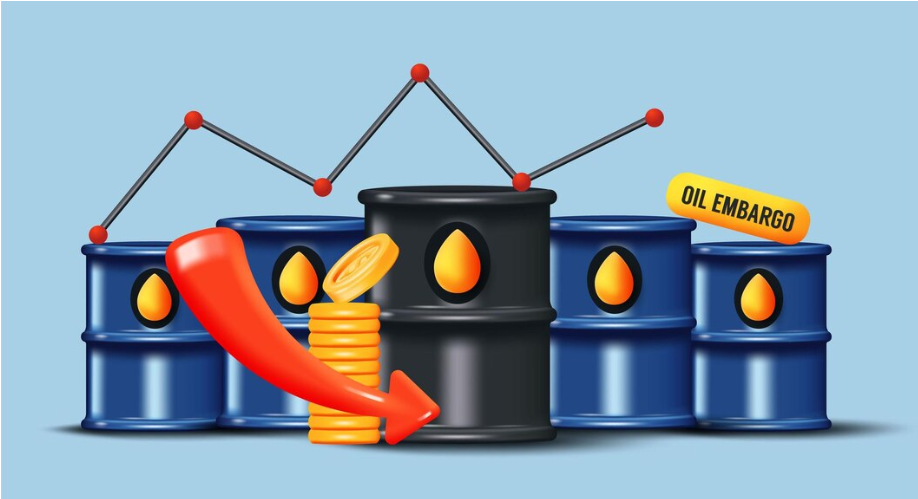The commodity markets have been all over the place lately, and it’s keeping investors on their toes! Whether you’re into gold, oil, or even agricultural products, staying informed about these trends is crucial if you’re in the game. This week, we’ll take a look at what’s been happening across key commodities, what factors are at play, and some insights on how to stay ahead. Ready? Let’s dive into this week’s updates and see what’s really moving the markets.
Key Factors Affecting Commodity Markets This Week
Commodities don’t just move without reason – there’s usually something big influencing them. This week, several global issues are making waves across the commodity market. From economic concerns to climate impacts, let’s break down what’s really driving prices.
1. Global Economic Outlook and Inflation Worries
Right now, inflation is one of the biggest topics affecting commodity prices. Rising inflation rates push up costs, affecting everything from crude oil to grains. As inflation remains high, investors often flock to commodities like gold as a hedge against devaluation of currency. This leads to increased demand and higher prices for precious metals and other safe-haven assets.
2. Supply Chain Disruptions
Supply chain problems aren’t just last year’s news; they’re still causing trouble for commodity prices. From oil shipping delays to shortages in critical metals, these disruptions can lead to price volatility. Countries dealing with unexpected shutdowns or delays are finding it hard to keep up with demand, which puts extra pressure on the market.
3. Geopolitical Tensions
Nothing shakes up the commodity markets like a bit of global tension. Ongoing conflicts, especially in regions that are crucial for oil production or mining, can cause serious market ripples. Oil is particularly sensitive to geopolitical tensions, and any unrest can lead to a spike in prices. Investors should watch out for any news that might suggest supply issues, as these can significantly impact prices.
Weekly Breakdown: Key Commodities on the Move
Now, let’s break down some of the major commodities making headlines this week.
1. Gold: The Safe-Haven Asset
Gold is having an interesting week! With the stock markets facing some turbulence, gold is catching attention as a go-to asset for stability. Investors often turn to gold when they’re worried about inflation or economic uncertainty, and with those factors in play, it’s no surprise that gold is seeing a bit of a boost.
But should you jump in now? Personally, I think gold is a smart hold if you’re cautious about the economy. FXpricing’s live charts for gold prices can help you keep an eye on any sudden moves.
2. Crude Oil: Prices Fluctuate Amid Supply Concerns
Oil prices have been bouncing up and down due to global supply concerns and changing demand expectations. Crude oil demand tends to drop with economic slowdowns, but with the winter season coming up, we might see an increase in demand for heating fuels.
The way I see it, oil is definitely one to watch closely this week. If you’re an investor looking at short-term opportunities, FXpricing’s real-time oil charts and analysis tools might just help you catch those rapid market shifts.
3. Agricultural Commodities: Weather and Supply Chain Impacts
If you’re into agricultural commodities like wheat, corn, or soybeans, then you know how much these are affected by weather. Weather disruptions have been causing both supply boosts and drops, and that’s affecting prices in real-time. Additionally, any international trade restrictions can lead to supply shortages, creating more price swings.
For investors or analysts keeping tabs on agricultural commodities, FXpricing’s up-to-date data can give you insights into these price changes.
FXpricing’s Role in Navigating the Commodity Market
Navigating the commodities market requires real-time data and accurate analysis – that’s where FXpricing shines. As a leading financial data provider, FXpricing offers all kinds of data on commodities, forex, cryptocurrencies, and more. Let’s take a quick look at how it can help you make better investment decisions in the commodity markets.
Why FXpricing?
- Real-Time Data and Live Charts: Want to know what’s happening in the market at any second? FXpricing’s live charts and real-time data ensure you’re never left guessing.
- Market Analysis and News Updates: Stay informed with our daily news and analysis, helping you understand market trends and making it easier to make informed decisions.
- Customizable Dashboards: Build your dashboard to track only the commodities and markets you care about, so you can focus on what matters most.
- Easy Integration with Trading Platforms: FXpricing’s APIs make it easy to integrate our data into your own platform or application, perfect for investors, brokers, and financial pros.
Upcoming Trends in Commodity Markets
Curious about what’s on the horizon? Here are a few trends that could shape the commodity markets in the near future.
1. Renewable Energy Transition Impacting Oil Demand
As more countries push for clean energy, oil demand could gradually drop. While this is a long-term trend, any news about renewables or government policies promoting green energy can have short-term effects on oil prices.
2. Increased Demand for Industrial Metals
Electric vehicles, batteries, and renewable technologies all need metals like lithium, cobalt, and nickel. As the demand for these technologies grows, the need for these metals is likely to keep rising. Investors looking at long-term commodity strategies may want to focus on these metals.
3. Food Prices and Climate Change
Agricultural commodities will remain highly sensitive to climate change. With extreme weather events becoming more common, the availability and price of food products are expected to fluctuate. This could create opportunities for savvy investors who track these trends closely.
FAQs
1. What factors influence commodity prices the most?
- Several factors impact commodity prices, including global economic outlook, supply chain issues, inflation, and geopolitical tensions.
2. Why is gold considered a safe-haven asset?
- Gold is considered a safe haven because it retains value during economic uncertainty. When inflation or market instability rises, investors often turn to gold as a secure store of value.
3. How can FXpricing help with commodity investments?
- FXpricing provides real-time commodity data, live charts, and market analysis, helping investors stay updated on price movements and make well-informed decisions.
4. Why are agricultural commodities so volatile?
- Agricultural commodities are affected by factors like weather, climate change, and trade policies, making them more volatile than other commodities.
5. What are some emerging trends in commodity markets?
- Some key trends include the transition to renewable energy impacting oil demand, increased demand for industrial metals due to tech growth, and the effects of climate change on food prices.




